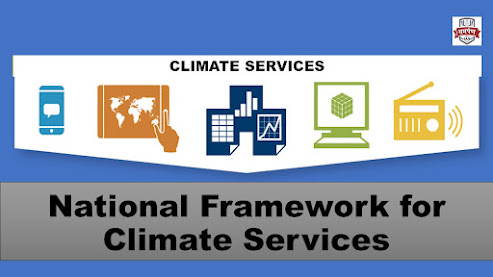- India is launching its first national-level framework for climate services led by India Meteorological Department (IMD).
- The National Framework for Climate Services (NFCS) aims to create a seamless platform for users of climate information and services.
- It will play a key role in mitigating climate risks across the key sectors such as agriculture, energy, disaster management, health, and water.
Global Framework for Climate Services:-
- The NFCS draws inspiration from the Global Framework for Climate Services (GFCS), which was announced during the third World Climate Conference held in Geneva in 2009.
- GFCS envisages to generate high-quality data from national and international databases on temperature, rainfall, wind, soil moisture and ocean conditions and other vital weather parameters.
- Major components of GFCS:
- Observation and Monitoring;
- Research, Modelling and Prediction;
- Climate Service Information System;
- User Interface Platform;
- Capacity Building.
- At present, the priority sectors where the GFCS focuses upon are agriculture and food security, energy, health, water and disaster risk reduction.
National Framework for Climate Services:-
- India could add other relevant sectors like transport, tourism and other emerging sectors from time to time.
- India acknowledges the successful implementation of NFCS in countries like Switzerland, China, Germany, and the United Kingdom.
- It will address the gap between various agencies that rely on climate services, including hydrology, power, renewable energy, transportation, etc.
What are Climate Services?
- A climate service is the provision of climate information to help end-users to make climate smart decisions.
- The climate information can range from seasonal forecasts (e.g., forest fire outlooks) to long-term projections (e.g., sea-level rise).
- It requires appropriate and iterative engagement to produce a timely advisory which can help in decision-making for the end users and enable early action and preparedness.
Source - Indian Express

